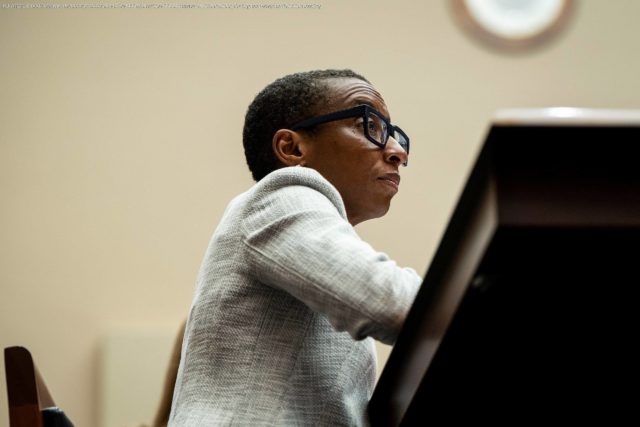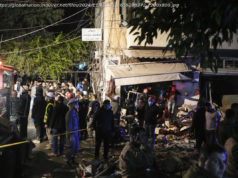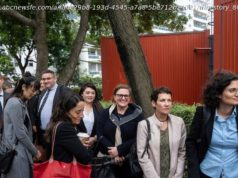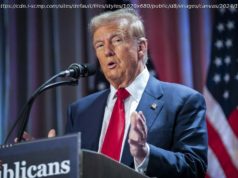Emma Green interviews D. Stephen Voss, an associate professor of political science whose work may have been plagiarized by Claudine Gay, Harvard’s former president.
Claudine Gay resigned as president of Harvard University, just six months into a tenure marked by campus unrest and controversy. After Hamas militants attacked Israel on October 7th, a number of Harvard student groups released a statement blaming Israel for the violence. The administration’s initial response was circumspect; in a statement, the school’s leaders said they were “heartbroken by the death and destruction unleashed by the attack.” After a public outcry, Gay released a follow-up statement explicitly condemning terrorism and distancing Harvard from the student groups. In December, Gay and two other university presidents were hauled before Congress to testify about antisemitism on their campuses. When Representative Elise Stefanik asked Gay whether calling for the genocide of Jews was a violation of Harvard’s policies against bullying and harrassment, Gay replied, “It can be, depending on the context.” Shortly afterward, Gay apologized.
But what ultimately brought Gay down wasn’t the furor over her testimony. It was accusations of plagiarism in her scholarly work, which has focussed in part on Black political participation. Rumors about Gay’s record had been circulating among conservative bloggers for months, but, as the national spotlight turned toward Harvard, media outlets such as the New York Post began investigating. In early December, the activist Christopher Rufo published allegations about Gay in his newsletter, including instances of missing citations and verbatim copying of other scholars’ writing without the use of quotation marks or attribution. In the following weeks, more apparent instances of plagiarism piled up. Gay has admitted to making errors, such as duplicating “other scholars’ language, without proper attribution,” but she has denied claiming credit for other people’s research, and has said that she stands by her work. In any case, on January 2nd, she stepped down from her role, saying that doing so was “in the best interests of Harvard” and that it had been “distressing to have doubt cast on my commitments to confronting hate and to upholding scholarly rigor.” (She will remain on the school’s faculty.)
Many professors have come to Gay’s defense, arguing that the attacks against her were orchestrated by right-wing activists aiming to discredit her because of her work on diversity, equity, and inclusion, and because of her response to October 7th. Perhaps surprisingly, one of her defenders is a professor she allegedly plagiarized from. D. Stephen Voss, an associate professor of political science at the University of Kentucky, knew Gay when they were both graduate students at Harvard. He was her teaching fellow, or T.A., and they worked in the same lab. Voss was a co-author of a 1996 paper that was included in a list of works that Gay allegedly copied from, which, according to the Washington Free Beacon, was compiled in an anonymous complaint to Harvard. One of the two paragraphs in question is pretty technical, describing the methodology of the paper; there are overlapping phrases, but they’re indirect. The other paragraph is a nearly verbatim copying of three or four sentences that Voss and his co-author wrote, with a few words changed.
I spoke with Voss about what it’s been like to get dragged into Harvard’s drama and why academics have been so divided over how to describe Gay’s actions. Our conversation has been condensed and edited for clarity.
Was what Claudine Gay did plagiarism?
What I teach my students, and what most people in the social sciences teach their students, is that borrowing either large chunks of text or a paragraph’s exact logic constitutes plagiarism. So, yes, that’s technically plagiarism.
Why do you append “technically” to the front of “plagiarism”?
I use the analogy of speeding. If you’re driving fifty-seven miles per hour on a fifty-five-mile-per-hour highway, that’s technically speeding. But we don’t expect law enforcement to crack down any time behavior crosses over the line. The plagiarism in question here did not take an idea of any significance from my work. It didn’t steal my thunder. It didn’t stop me from publishing. And the bit she used from us was not in any way a major component of what made her research important or valuable.
So how serious a violation of academic integrity was this?
From my perspective, what she did was trivial—wholly inconsequential. That’s the reason I’ve so actively tried to defend her.
Does the scope of the allegations change your assessment at all—the fact that it wasn’t just material from your paper that she copied, but multiple instances across her work?
I have carefully tried to avoid speaking to the accusations of serial plagiarism, rather than the part that involved me. I have a conflict of interest, both in the sense of having past associations with Claudine, which might make people think I’d be biased toward her, but also because my work was getting attention. I stood to gain from faking moral outrage over it. So people might think I have a conflict of interest in the other direction.
I’m struck by how clearly you saw the possibility of a prize that you could pursue in all of this—that if you took up this campaign against Gay you could get some mileage out of it, professionally and personally. It’s so cynical, but it also seems right.
I don’t know that I did see it clearly. Once I saw that no significant plagiarism had actually taken place, my gut reaction was to jump to Claudine’s defense. Later on, other people told me, “I admire the approach you’ve taken—that you didn’t try to capitalize on this.” And then it dawned on me.
Do you think that Gay should have been fired from her job rather than being allowed to resign? And do you think that she should get to remain on Harvard’s faculty?
You’re asking me about these bigger-picture academic questions that I’m not comfortable answering.






